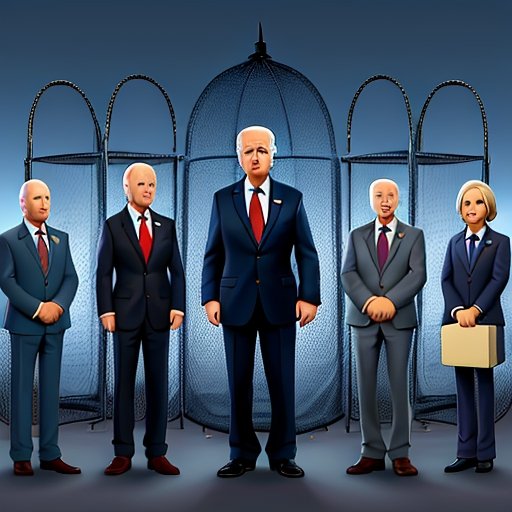Why are so many people gulping down the Liberal and Progressive Economic Kool-Aid like it’s the latest TikTok trend? Maybe it’s time we put down the smartphone, turn off the podcast, and step away from the 24/7 news circus to actually think for ourselves. Aren’t we smarter than letting elections become a reality TV show? Our votes shouldn’t be based on who has the best catchphrase or the most likes, but on the policies that will shape our future—and the future of our kids and grandkids.
Understanding Party Values
You’ll notice that politicians on both sides typically stick to their party’s playbook. It’s like they’re all reading from the same script – probably because if they don’t, the party bigwigs might give them the boot faster than you can say “flip-flop.” So, the real trick is figuring out which party’s values you jive with the most. Because let’s be real, the person you elect as President isn’t just bringing their own baggage to the White House – they’re bringing the whole party’s luggage set. Don’t just vote based on who gives the best sound bites or who the media’s crushing on this week. Take a good, hard look at what each party stands for and make your choice based on facts, not feels. Our country’s future isn’t a reality TV show – it’s the real deal.
The Great Economic Showdown: Conservatives vs. Liberals
Now, let’s dive into the economic cage match of the century: conservative versus liberal economic values. The media loves to paint conservative economics as a piggy bank for the rich, but hold onto your wallets, folks – that’s not the whole story.
Conservative Economic Values: The Prosperity Pipeline
- Lower taxes for businesses and high-earners
- Stimulate economic growth and job creation
- Encourage investment and expansion
- Foster innovation and entrepreneurship
- Create a self-sustaining cycle of growth
Conservative economics is like planting a money tree. You nurture it with lower taxes, water it with business-friendly policies, and before you know it, you’ve got a forest of prosperity that everyone can enjoy. It’s not about making the rich richer; it’s about baking a bigger economic pie so everyone gets a larger slice.
Remember from history how Ronald Reagan’s tax cuts sent the stock market soaring and unemployment rates plummeting? That wasn’t just good news for Wall Street fat cats – it meant more jobs, better wages, and fatter wallets for everyday Americans. Now that’s what I call a “trickle-down” effect!
Liberal Economics: The Road to Dependence
On the flip side, we have liberal economic values. Picture this: Uncle Sam as Robin Hood, but instead of stealing from the rich to give to the poor, he’s pickpocketing everyone and handing out government IOUs.
Liberal Economic Values: The Dependency Trap
- Higher taxes on businesses and individuals
- Wealth redistribution through government programs
- Short-term benefits, long-term economic slowdown
- Reduced incentives for business growth and investment
- Increased reliance on government support
Liberals love to talk about “fair share” and “equality,” but their policies are about as effective at creating prosperity as a chocolate teapot is at holding hot water. Sure, it might look sweet at first, but pretty soon you’ve got a mess on your hands.
Remember Obama’s “you didn’t build that” gaffe? That wasn’t just a slip of the tongue – it was a peek into the liberal mindset that sees government, not individual initiative, as the engine of progress. And let’s not forget the “Affordable” Care Act, which turned out to be about as affordable as a gold-plated yacht. These are prime examples of how liberal policies promise the moon but deliver a handful of moon rocks – expensive, impractical, and not very useful in daily life.
The Long Game: Prosperity vs. Dependency
In the long run, conservative economic policies are like a well-built house – they might take time to construct, but they’ll weather any storm. Liberal policies, on the other hand, are more like a house of cards – impressive at first glance, but one stiff breeze (or economic downturn) and the whole thing comes tumbling down.
Just look at the tale of two cities: Detroit and Houston. Detroit, long under Democrat control, has become the poster child for urban decay. Meanwhile, Houston, with its business-friendly, low-tax environment, has been booming. It’s like comparing a rusty old Chevy to a sleek Tesla – both are cars, but one’s stuck in the past while the other’s racing towards the future.
Conclusion: Choose Wisely, America!
So, there you have it, folks. Conservative economics: the gift that keeps on giving, creating a rising tide that lifts all boats. Liberal economics: the gift that keeps on taking, until we’re all in the same leaky boat, waiting for a government bailout that our kids and grandkids will have to pay for.
Next time you step into that voting booth, remember: you’re not just choosing a candidate, you’re choosing an economic future. Do you want a hand up or a handout? A booming economy or a bloated bureaucracy? The choice is yours, America. Choose wisely – your wallet (and your children’s wallets) will thank you!






